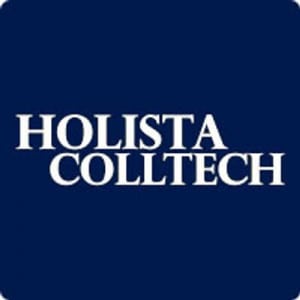25 Feb 2015 — Holista Colltech Limited has announced the commercial  availability of food grade sheep collagen under the brand Ovinex. Food grade or oral collagen is sometimes referred to as collagen peptide. It is uniquely made by enzymatic cleavage of the much larger collagen molecule under specific conditions of time, temperature and acidity/ alkalinity.
availability of food grade sheep collagen under the brand Ovinex. Food grade or oral collagen is sometimes referred to as collagen peptide. It is uniquely made by enzymatic cleavage of the much larger collagen molecule under specific conditions of time, temperature and acidity/ alkalinity.
This process makes the collagen highly soluble and easily digestible. Ovinex is as a result of 3 years of research and development in Australia, the United States and Malaysia.
The launch was presided over by the CEO, Dr. Rajen Manicka, at the plant in Collie at the launch today. “Ovinex represents a major landmark for the company as we move into a large and growing global food grade collagen market. Sheep as a source of collagen is unique is does not present the serious cultural and religious challenges seen with collagen from cows and pigs. Ovinex is also “Halal” certified. We have tremendous protection of our differentiation in terms of a strong patent and several related proprietary technologies” he said.
“This also represents a new and significant source of revenue for the company as we are now able to better exploit of collagen extraction patent and our collagen processing facility in Collie. So far, we have only been in cosmetics. This is a business where we merely sell 1% (or one gram) of collagen a month. With this new food grade collagen, we sell the 5 grams a day or 150 grams a month – that is a potential growth of 150 times. The beauty is that the hydrolyzed collagen can also be turned in cosmetics in many instances.” he further added.
Director Daniel O’Connor who had lead much of the development work in Australia including the effort to upgrade the plant said that “we were able to complete this innovation because of some dedicated scientists across Australia. We are also deeply appreciative of the financial help of the Australian Government. Australia is the only nation with certified disease free sheep. This will big impetus of export and will create new value added opportunities for sheepskins” According to a market report published by U.S. based market research company, Transparency Market Research “Collagen Peptide and Gelatin Market – Global Industry Analysis, Size, Share, Growth, Trends & Forecast, 2014 – 2020” the global collagen peptide market was valued at USD 0.7 billion in 2013. It is estimated to reach a market worth of USD 1.1 billion in 2020 – growing at a CAGR of 6.8% from 2014 to 2020. Geographically the collagen peptide market is segmented as: – North America – Europe – Asia-Pacific – Rest of the World
North America accounts for the largest market share in the global collagen peptide market in 2013, owing to large number of R&D practices, strong awareness about nutraceuticals and wide use of cosmeceuticals. However, the Asia-Pacific, driven by largely by China, Taiwan and Japan, is estimated to grow strongly and emerge as the most promising and fastest growing market during the forecast period from 2014 to 2020. This growth is expected to be driven by factors such as:
– the strong use of collagen in traditional Chinese Medicine
– steadily increasing industrialization
– increased awareness towards nutrition and personal well-being.
The global collagen peptide market is consolidated and is dominated by selective players operating at the global level, such as, Rousselot International, PB Gelatin, GELITA AG, Nitta Gelatin and Weishardt International Group. Rousselot International was the market leader in collagen peptide market in 2013, followed by GELITA AG and Roxlor LLC. The global collagen peptide market is segmented as follows:
– Bovine
– Porcine
– Marine
– Chicken Applications
– Bone and Joint Health
– Pet Food
– Pharmaceuticals
– Cosmeceuticals
– Nutraceuticals
– Food and Beverages
– Wound healing market
– Regenerative Medicines Holista’s unique process patent on the process is valid until 2023 and another sheep collagen player is not likely to emerge on the strength of the patent with Australian sourced sheep.



